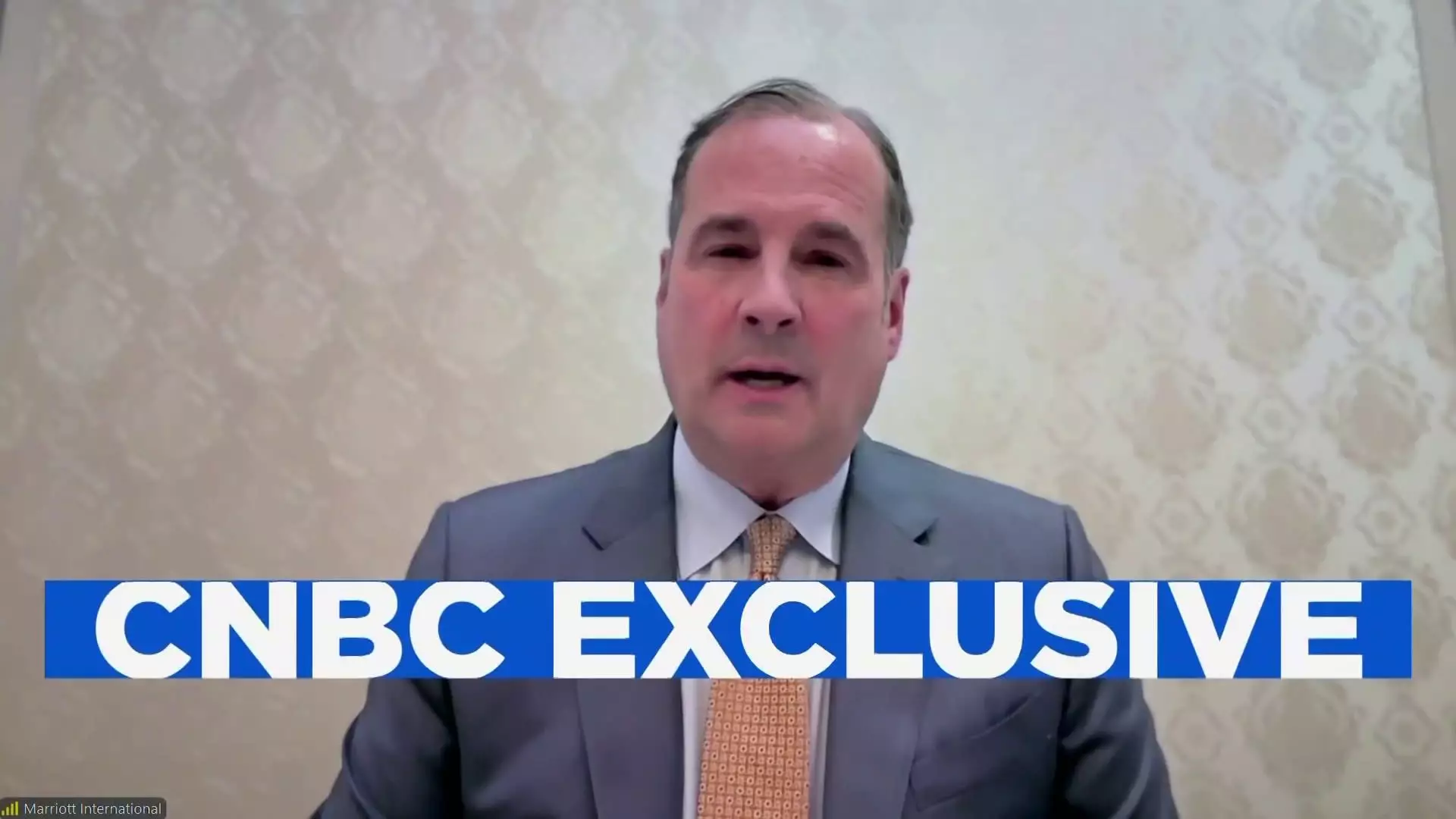Marriott International, a behemoth in the hospitality industry, finds itself amid a dual challenge: navigating layoffs of over 800 corporate staff and grappling with a sluggish tourism market in China. In a recent interview with CNBC, CEO Anthony Capuano remained optimistic, emphasizing that the company’s global operations are performing robustly. Despite the backdrop of layoffs, which reportedly stem from a strategic reorganization rather than financial distress, Marriott’s financial performance illustrates resilience. The company reported a modest 3% increase in revenue per available room (RevPar) worldwide, showcasing that demand remains strong in several regions, albeit marred by an 8% decrease in RevPar in the crucial Chinese market.
Long-term Growth Prospects in China
Capuano’s unwavering belief in the potential of the Chinese tourism market comes from various signals indicating a recovery trajectory. He pointed out an impressive number of hotel signings in the first half of 2024, marking the most active period for Marriott in China to date. This significant uptick in deals suggests that both public and private entities remain optimistic about the long-term viability of China’s travel sector. Moreover, the gradual rebound of domestic tourism complements this narrative, with inbound travel already exceeding pre-pandemic levels. Capuano’s assertion that over 20% of total room nights in the third quarter had been derived from cross-border travel reinforces the idea that, despite current challenges, the foundations for future growth are being laid.
Marriott’s impressive loyalty program, Bonvoy, has become a cornerstone of the company’s overall strategy. During the third quarter, the program added a remarkable 9 million new members, bringing the total membership to an astounding 219 million. Such growth highlights the effectiveness of Marriott’s outreach and partnerships. Collaborations with well-known brands like Uber and Starbucks not only enhance the customer experience but also solidify Marriott’s position in the competitive landscape. The company’s emphasis on its loyalty program is particularly astute, given that customer retention is essential in a post-pandemic environment where consumers are seeking more personalized and rewarding travel experiences.
The decision to conduct a significant workforce reduction, labeled as a necessary “reorganization,” reflects a strategic pivot in Marriott’s approach to its corporate structure. Capuano framed this as a need to decentralize decision-making across the global teams, aiming to enhance responsiveness to local market conditions. The layoffs primarily affect corporate roles at the headquarters in Bethesda, Maryland, but have been assured to not impact service levels at Marriott properties. This restructuring effort, projected to yield notable cost savings of $80-$90 million annually beginning in 2025, underscores a proactive approach to efficiency without compromising on service quality.
Amidst challenges, Marriott is seeing growth opportunities, particularly in the Asia-Pacific region. Capuano highlighted the company’s strong occupancy levels and average rate growth, particularly in Japan, where Marriott recently achieved a milestone by launching its 100th hotel. This expansion is indicative of a broader trend within the hospitality sector where selective growth in well-performed markets can mitigate slower-performing regions. The successful entry into diverse markets reaffirms Marriott’s strategy of adaptable and localized decision-making, which is key in an industry that requires agility and responsiveness.
Marriott International’s journey through current economic headwinds—characterized by layoffs and market fluctuations—exemplifies a balancing act between immediate challenges and long-term aspirations. Capuano’s focus on strategic growth, marketplace opportunities, and the strength of its loyalty program positions the company to weather the current storm and emerge stronger. As economic conditions improve and pent-up travel demand resurfaces, Marriott appears well-equipped to capitalize on these shifts, ensuring its place as a leader in the global hospitality industry while remaining mindful of the need for ongoing adaptability and innovation.

